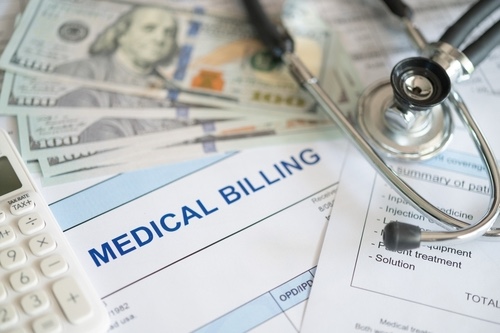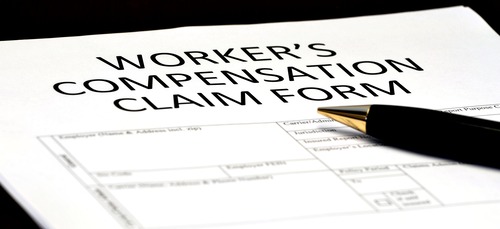Is Workers’ Compensation Taxable In Miami?
Worker’s compensation is received by an employee that got injured while on the job. This worker’s compensation helps cover the lost wages, medical expenses, mileage reimbursement, and much more.
An injured worker may receive worker’s compensation for a few weeks to months to several years, depending on the severity of the injuries. In this regard, people usually wonder if the worker’s compensation benefits will be taxable?
The short answer is No. According to workers comp attorneys in Miami, Florida, with a few exceptions, your worker’s compensation is not taxable in Miami.
Why isn’t worker’s compensation taxable in Miami?
Now that you know it’s not taxable, you may wonder why the worker’s compensation is not taxable in Miami, Florida?
Do you know Florida provides the highest worker’s compensation to injured employees? The maximum amount you can collect as worker’s compensation per week is $1,099 for 2022. Remember, this maximum cap changes every year.
You should also know that the injured worker is entitled to collect 2/3rd or 80% of their average weekly wage as worker’s compensation. If your average weekly wage is $100, you are entitled to receive at most $80 as worker’s compensation.
This is where the answer to the above question lies. If you receive 100% of your average weekly wage as worker’s compensation after being taxed, your gross wages would be 2/3rd of your weekly wage.
In short, your taxed normal income would approximately be equal to your nontaxable worker’s compensation. This holds for employees in lower-income groups.
People receiving high income, like $1,800 per week, are losing out on benefits as the benefit decreases as the income level increases.
When is my worker’s compensation taxable in Miami?
In certain circumstances, your worker’s compensation may be taxable. Some of the instances include:
- When you are receiving SSI or SSDI
A part of your worker’s compensation benefits will be taxable if you receive both SSI, SSDI and worker’s compensation. The Social Security Administration in Florida will reduce your total payment.
This is because the SSA has to ensure that the total benefits from SSI/SSDI and worker’s compensation don’t exceed 80% of the average weekly wage before the injury.
If the total amount of benefits exceeds 80% of the average weekly wage, the SSA will lower the check of SSDI or SSI by a similar amount. This amount reduced will be taxable.
However, it is considered that this lowered amount isn’t taxable enough. You can contact a worker’s compensation attorney in Miami, and they can help offset, minimize, or avoid the tax on worker’s compensation altogether.
- When you go back to work on light duty
In Miami, Florida, your worker’s compensation may be taxable if you return to work on light or restricted duty. If you are diagnosed with a temporary partial disability (TPD) and reached your maximum medical improvement, you may require joining back work after a recommendation from the authorized doctor.
Even when you are under the care of an authorized doctor, you will need to pay taxes on the wages collected from light duty work. In this situation, you will receive the wages for the light work you are performing and the TPD benefits.
You will still receive TPD benefits to compensate for the lost wages compared to your pre-injury wages.
For instance, in Florida, you are entitled to receive 80% of your average weekly wage pre-injury. So if you earn $1000 per week, you are entitled to receive $800 as part of the benefits.
In this condition, you will also be receiving wages for performing light duty. Since you are working in the restricted mode, you will collect less than your pre-injury wages. Let’s say you collect $600 per week on light-duty work.
You are still short of $200, i.e., $800-$600, to receive 80% of your average weekly wage. Therefore, you will be receiving TPD benefits. The TPD benefits will be calculated as 80% of the $160. Thus, you will be receiving $600 + $160 = $760 as your total average weekly wage after injury.
You are not required to pay taxes on $160 but $600. $600 will be counted under taxable income.
Are worker’s compensation death benefits taxable?
According to Internal Revenue Service, the death benefits received by the serving family members of the employee are not taxable.
If you have lost someone injured on the job, you have the right to receive the death benefits. Death benefits cover the funeral expenses and the dependency benefits. These benefits are not taxable.
If you are denied the worker’s compensation or if your worker’s compensation is getting taxed, you should contact a worker’s compensation attorney in Miami for your right.
How long should you wait to get your benefits in Miami?
When is the right time to contact an attorney? How long should an injured employee wait to get the worker’s compensation benefits? These two questions are important to deal with the repercussions that follow.
The right time to contact an attorney is within 2 to 3 days of your injury in circumstances where you find your employer is not providing worker’s compensation or the insurance carrier has denied the benefits.
Furthermore, if you have reported your injury and your worker’s compensation benefits are approved, you should approve 21 days before reporting your injury to get the benefits. If you haven’t received any benefits within this period and haven’t received any intimation regarding the same from the employer or insurance carrier, you should contact the worker’s compensation attorney in that case.
Contact Florida’s employee Assistance office for legal help by calling 1800-342-1741.
If you are looking to file a worker’s compensation lawsuit, you should contact the attorney within two years from the date of injury.
Conclusion
Florida’s Division of Worker’s compensation is well established and caters to the needs, queries, and worries of the employees. It provides legal help, reemployment services, petition for benefits, an anti-fraud reward program, and much more.
If you are still experiencing problems getting your worker’s compensation in Miami, you can approach a personal injury attorney in Miami for more details.






